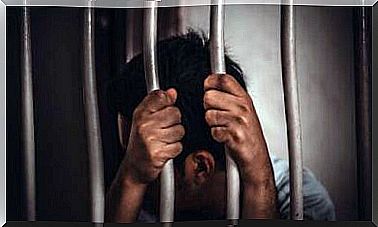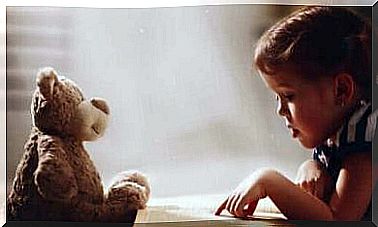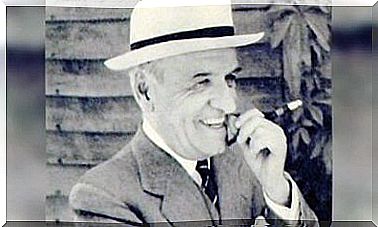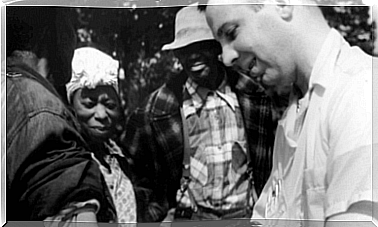Childhood Jealousy: Symptoms And Strategies
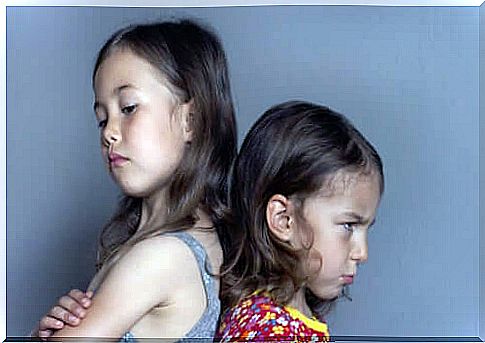
Once upon a time, there was a child who felt at the center of the universe. All the attention of his parents was directed towards him… and him alone. Yet one fine day, the little boy received what was not good news for him: he was going to have a little brother. He was not at all amused. Fortunately, his parents soon learned that they had to work on infantile jealousy with their eldest son.
Unfortunately, after some time, the parents were overwhelmed by the problem and the was jealous of the child has become chronic and even increased. Because of this, the boy’s relationship with his brother worsened, and gradually the whole family was overwhelmed by the situation.
Does the problem sound familiar to you? It is a situation which occurs more often than one thinks and which is able to generate a good dose of suffering. And not just because of the arrival of a younger brother or sister. The reasons behind childhood jealousy can be very varied.
So how should we act? Childhood jealousy may or may not be justified, but it is there and it is real. Therefore, prevention work should be done in order to avoid its occurrence.
If it is already there, observe the causes, analyze the symptoms and, if necessary, seek the help of a specialist. Before talking about strategies, let’s try to better understand what childhood jealousy is.
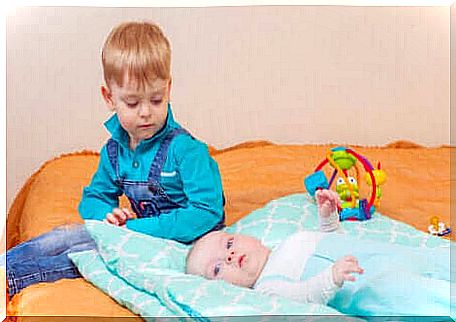
What is infantile jealousy?
Jealousy refers to a subjective state that causes feelings of frustration. This feeling can also apply to pets. The jealous individual feels a lack of correspondence.
Jealousy may not be justified. The child can continue to receive the same attention as before, even more than his brother. However, in the mind of the sufferer, the suffering is real. It may be due to a clinical disorder requiring specialized care.
In the case of children, envy and resentment can be very strong. Either way, it is still a cognitive distortion which, in time, could have adverse consequences.
Childhood jealousy towards siblings
It is a very common cause in children. It is usually produced by environmental and evolutionary factors and it can be relevant. The factors can also be genetic: there can therefore be consequences in adulthood.
Evolutionary infantile jealousy
It depends on the evolutionary moment of the child. Between 2 and 5 years, infantile jealousy is critical, because if it arises during the attachment phase, the situation becomes particularly sensitive.
Paternal characteristics
The educational style of the parents or guardians of the child at home is also an important factor to consider in the onset and development of jealousy in children. As is the family climate.
Environmental factors
The child’s environment, and not just his family environment, plays an important role. His own experiences, his ability to socialize, his tolerance, his possible emotional deficiencies… Everything influences infantile jealousy.
Symptoms of childhood jealousy
There are different indicators that can show us that we are dealing with a jealous child, whether it is founded or not. The most common factors are:
- Unjustified mood swings.
- Signs of unhappiness such as unmotivated crying.
- The appearance of new behaviors such as bedwetting or lack of appetite.
- Changes in gestural and verbal expression.
- A negative attitude, stubborn and having difficulty in obeying.
- A systematic denial of one’s own mistakes and a tendency to blame others.
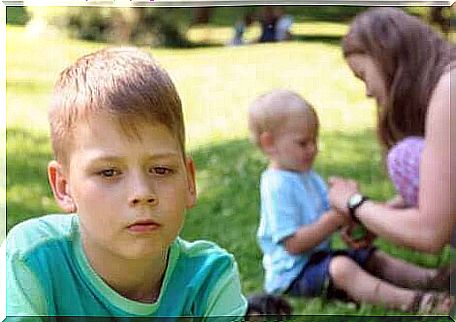
Strategies for working on infantile jealousy
When we work with infantile jealousy, there are a number of strategies that need to be considered. The most important points are:
- The origin of jealousy. It is important to know the child and his situation. Knowing the origin of jealousy, it is possible to act accordingly.
- The involvement of all stakeholders. Once jealousy is identified, the guideline to follow is set and should be followed by those who interact with the child.
- The abandonment of a possible preferential treatment. If there are several children in the family, we must at all costs avoid preferential treatment for one of them.
- Positive reinforcement. Positive reinforcement highlights successes and doesn’t overemphasize the negatives.
- The withdrawal of attention from jealous behavior. Namely tantrums, willful disobedience, etc.
- Strengthening family activities and group games.
- Calm. It is important to react calmly to episodes of jealousy. Shouts and recriminations should be avoided as much as possible.
- Privileges. When the child is focusing on the negatives, talk to them about the positives.
Working on infantile jealousy is important because, as we have said, it continues to be a source of suffering and a source of erosion for interpersonal relationships. If the situation gets out of hand, you should contact a professional to plan an appropriate intervention with him.



